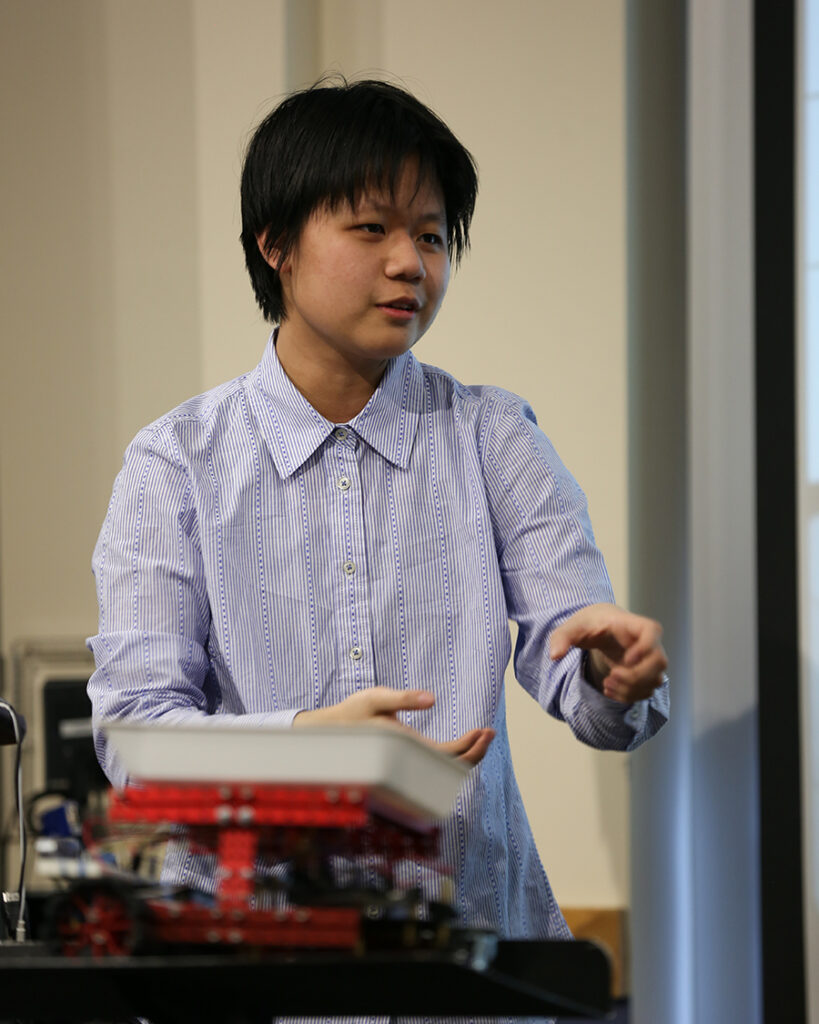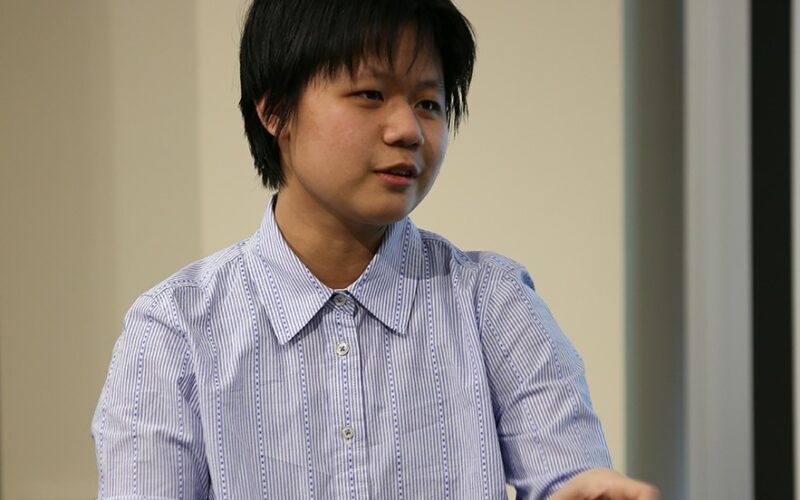Rachel has been a KTBYTE student since 2017, when she first joined us for a CS00a course. Since then she has completed many of our most difficult classes including Advanced Machine Learning and USACO Silver. Perhaps most impressively, Rachel was recently accepted to Carnegie Mellon University’s School of Computer Science (SCS). In this KTBYTE student feature Rachel talks us through her experiences learning computer science and applying to universities. We are so proud of Rachel and wish her the best as she continues her educational journey!

1. Why did you choose CMU, and specifically, what made you decide on the CS Program?
Carnegie Mellon is pretty well known for its CS program. The environment feels extremely collaborative due to the small class size, different from that of a school like Berkeley, where the class size is so large that students may feel lost. CMU is also one of two schools which has an entire school dedicated to computer science instead of just a subfield in a school of engineering/arts and sciences. Generally, applicants who apply Early Decision also have a potentially increased chance at acceptance, and applicants usually apply to reach schools/ivies for their early round, and Carnegie Mellon CS was that “reach school with a low acceptance rate” ED shot for me. CMU SCS seems very theory-based and research-based (with no shortage of entrepreneurship opportunities), and I am very excited to take advantage of those resources.
2. How did you get into CS?
I grew up in a strict Asian household and was sadly not allowed to play video games in my childhood. In my first KTBYTE course, the first final project that I completed was making my own video game. I think that having that taste of freedom was the gateway that led me into CS.
3. When did you first start with KTBYTE, and how did it help you?
8th grade-classes at KTBYTE definitely made me more confident in my ability to program and gave me lots of background when I had to take CS courses in my high school and take the AP CS exam. I also met many amazing connections at KTBYTE through the robotics team.
4. What have you been most challenged by while learning how to program?
There’s all kinds of stuff: the same self-sabotaging mental block that people sometimes get with math, or finding a product/library so obscure that you can’t use it even though it might fit perfectly with your project. CS is all about problem-solving, and it’s often challenging to break down a problem into programmable parts of a solution.
5. What was the most difficult part of applying to colleges this year? Do you have any tips?
- Start your common app early and aim to complete the common app essay by the end of Junior summer. Procrastination is your enemy in the college apps process.
- Create a spreadsheet of the experiences you’ve had (awards/camps/projects). Write down the start/end date and maybe a couple sentences on specific aspects that you found interesting. That way you can potentially recall and write about those moments later in supplemental essays.
- Try to tour colleges if possible and write down things you really enjoyed or found unique about each school. Colleges usually have “Why This School?” essays where you need to explore this.
- Create a spreadsheet for each college’s supplemental essays, and plan out the supplement-writing process in a way that allows you to fill in the most amount of supplemental “slots” with the fewest essays.
6. You mentioned you have some passion projects – what do you plan to do between now and college?
Some things I’m thinking about: putting out a game demo on Kickstarter, applying for some student grants, replicating the iconic screaming roomba, moderating or contributing towards some zines, catching up on sleep, and partnering up with some CMU students to attend hackathons.
7. Reflecting on your CS/robotics education, what were the most enjoyable projects you’ve worked on?
I was a game developer for a visual novel that took a year to produce, a process that spiraled into lengthy 200-page color-coded documents, 4 A.M. lore discussions, and so many beta-testing error screens. The process itself had highs and lows, but the amount of payoff that I got when completing a finished product made the entire process worth the effort! I also vividly remember going to my first hackathon (Metrohacks) and presenting a series of short visual demos with another KTBYTE student. Both the crunch and teamwork were aspects of a hackathon that I wanted to return to. I love the moment when I present my project for the judges, getting shot back with a question about a potential problem with my invention, only for me to counter with a solution that I either thought of on the spot or prepared beforehand.
8. You’ve had some leadership roles in the last few years. Which ones were your favorite and how have they helped you?
I’m a director of a non-profit organization which focuses on giving platforms to neurodivergent individuals. Everyone on the team is extremely ambitious-we publish podcasts, webinars, research papers, art, websites, etc. It’s an exciting and collaborative environment where anything I pitch becomes suddenly possible. I also have a ton of leadership experience playing in the Boston Youth Symphony. Over the years, I think that my positions in BYS have led me to gain a constant awareness of my surroundings and a sense of blind courage and faith in my own gestures.
